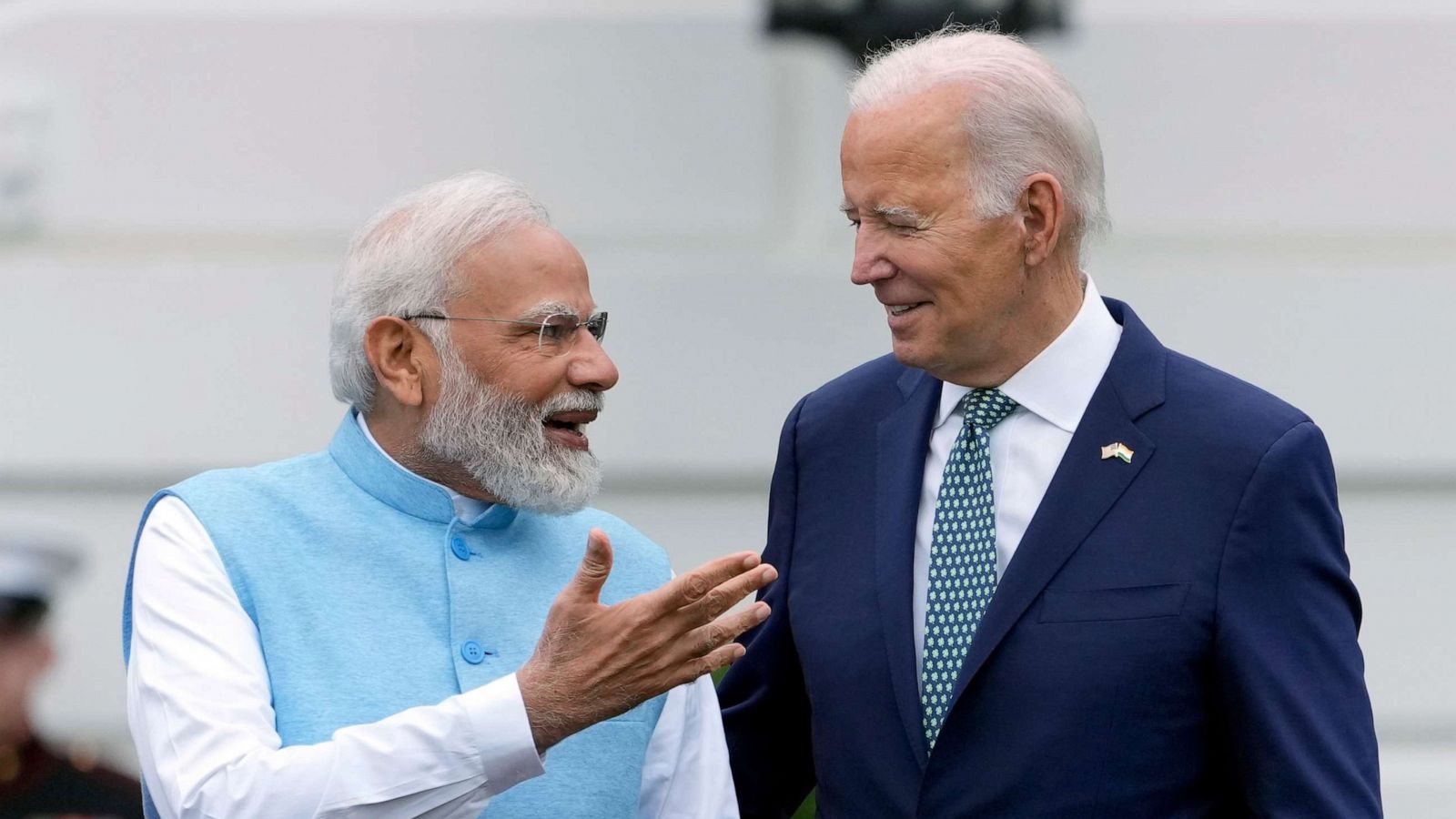 The US reaffirmed its support for Indian membership of the Nuclear Suppliers Group (NSG) during a state visit to Washington by Prime Minister Narendra Modi. A joint statement by Modi and US President Joe Biden covered a wide range of subjects, with nuclear only mentioned in one (para 22). It said: “Prime Minister Modi underscored the important role nuclear energy plays in global decarbonisation efforts and affirmed nuclear energy as a necessary resource to meet our nations’ climate, energy transition, and energy security needs.”
The US reaffirmed its support for Indian membership of the Nuclear Suppliers Group (NSG) during a state visit to Washington by Prime Minister Narendra Modi. A joint statement by Modi and US President Joe Biden covered a wide range of subjects, with nuclear only mentioned in one (para 22). It said: “Prime Minister Modi underscored the important role nuclear energy plays in global decarbonisation efforts and affirmed nuclear energy as a necessary resource to meet our nations’ climate, energy transition, and energy security needs.”
The leaders noted ongoing negotiations between the Nuclear Power Corporation of India Limited (NPCIL) and Westinghouse Electric Company (WEC) for the construction of six nuclear reactors in India. They welcomed intensified consultations between the US Department of Energy (DOE) and India’s Department of Atomic Energy (DAE) “for facilitating opportunities for WEC to develop a techno-commercial offer for the Kovvada nuclear project”. They also noted the ongoing discussion on developing next generation small modular reactor technologies in a collaborative mode for the domestic market as well as for export. Finally, “the United States reaffirms its support for India’s membership in the Nuclear Suppliers Group and commits to continue engagement with like-minded partners to advance this goal.”
In March 2019, India and the US issued a joint statement agreeing to strengthen security and civil nuclear cooperation, including the construction of six US nuclear power units. This followed a visit to India by Andrea Thompson, the US undersecretary of state for arms control and international security.
Westinghouse has been negotiating to build reactors in India for years, but concerns about India’s nuclear liability laws and Westinghouse’s bankruptcy filing in 2017 have led to delays. In 2018, US Energy Secretary Rick Perry expressed strong support for the Westinghouse project, which envisaged building six AP1000 reactors in the state of Andhra Pradesh. Kovvada was selected chosen for the construction of six Westinghouse AP1000s reactors but contractual arrangements have not yet been finalised.
The agreement to build US reactors, initially announced in 2016, was only made possible by a US-India civil nuclear agreement signed in 2008. This, in turn, led to the Nuclear Suppliers Group (NSG) giving a special waiver to India, which has not signed the nuclear non-proliferation treaty (NPT) and so was excluded. The NSG was created after India’s nuclear weapons test in 1974 after which it became impossible for India to import any nuclear technology, forcing it to focus on indigenous nuclear development.
NSG guidelines contain the "Non-Proliferation Principle," adopted in 1994, whereby a supplier, regardless of other provisions in the guidelines, can only authorise a transfer of nuclear material or equipment provided it is satisfied that the transfer would not contribute to weapons proliferation. Long-running negotiations to include India as a full-fledged NSG member have stalled on Chinese opposition. However, the waiver has enabled India to sign civil nuclear cooperation agreements with numerous countries.
However, India's nuclear liability regime has remained a stumbling block for France and the USA. Following the 1984 Bhopal gas tragedy which killed at least 4,000 and left another 4,000 severely disabled, and for which no adequate compensation has ever been paid by the US companies involved, India's parliament passed a law, making equipment suppliers responsible for any accident. India adopted a Civil Liability for Nuclear Damage Act in 2010 making Indian operators primarily liable for any nuclear accident, but leaving open the possibility of recourse to suppliers. A compromise on liability was reached with Russia, which proceeded with construction at the Kudankulam NPP. An insurance scheme was then put in place offering suppliers some further protection, but the USA is still hesitant.
India currently has 22 reactors in operation with a total net capacity of around 6780 MWe, which generate about 3% of the country's electricity. It is hoping to increase this almost threefold to a total capacity of 22,480 MW by 2031, and to include small modular reactors (SMRs).
Image: US President Joe Biden welcomes India's Prime Minister Narendra Modi at the White House and reaffirms support for Indian membership of the Nuclear Suppliers Group (courtesy of ABC News)



